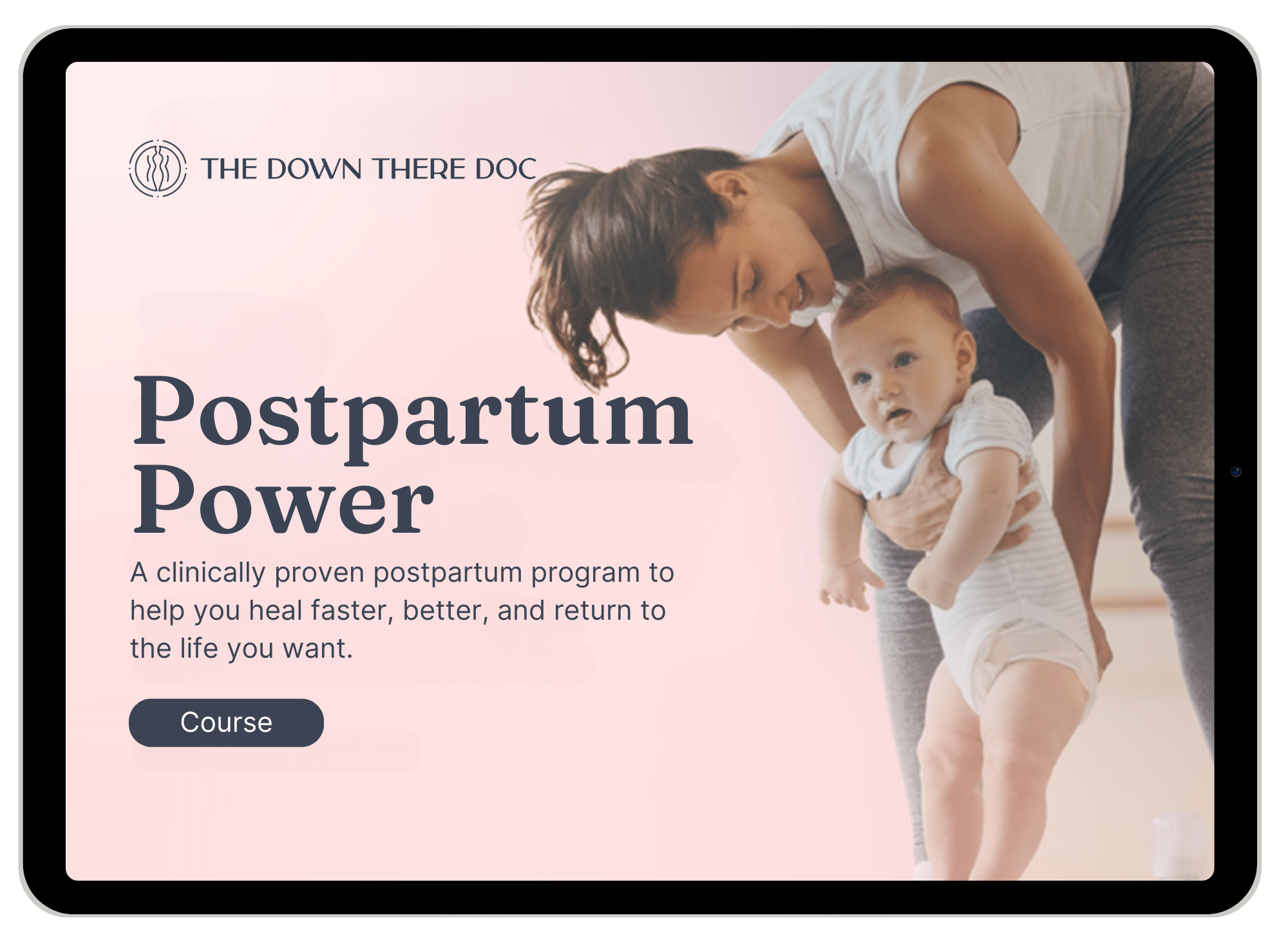About to have a baby via C-Section?
Dads and partners need to know what’s about to happen so they can support Mama and baby as best as possible. Dads and partners often get left out, but in my opinion, we need to make sure the person caring for Mom is just as well equipped and feels confident and calm…well…as calm as you can be during this monumental time in your life.
Before we dive in, it could be super helpful for you to have a little background on C-sections. I won’t go into detail here, but I’ve got a full episode about this on my podcast, No Mama Left Behind. Check out the episode, “The 411 on C-sections” for a discussion on the history of C-Sections, why they are necessary, and how they are used.
Now let’s get down to business. Dads and Partners—this is for you. Here’s what to expect and do before your wifey or partner goes in for their C-section.
See Also

The weeks leading up to a c-section
Start thinking about what you need to do to help take care of things at home. Regular household chores, meals, structure, and schedule are likely to be thrown off with the excitement and business of a new baby. Keep this in mind and try to plan ahead. Here’s a couple of examples of what might be helpful to prepare:
- Help plan, cook, and freeze meals
- Schedule a meal train with friends and family
- Do laundry so there are fresh sheets and jammies
- Organize play dates and sitters to keep your other children busy
- Arrange for dog walkers or pet sitters
The last few doctor visits
You’ll probably be accompanying your wife or partner to the doctor the week before the procedure. Make sure you ask the doctor what the policy is on visitors, where you will be sleeping, what types of medication your wife will be on and what side effects she might experience.
This will help you understand how she’ll be feeling after the surgery and what she may need. For example, some Mamas are super nauseous after surgery and are often prescribed anti-nausea meds. It would be helpful for you to ask what type of anti-nausea meds will be given, how long you can expect her to be nauseous, and what is used for pain management. The more you know what to expect, the more you can help your wife or partner when she is recovering.
Ask your partner what type of special requests she has for the procedure
Some hospitals allow partners and Dads to cut the cord, have the curtain down, do immediate skin-to-skin after the baby is delivered from the belly, etc. Having her wishes known can help you advocate for her in the moment, and she will feel more reassured that her wishes are being respected.
Make sure she has what she needs for recovery
Make sure ahead of time that she will have everything she needs as she recovers, I’m talking about things like:
- Compression garments
- Re-usable chuck pads
- Postpartum undies (my favorite are Saalt PostPartum Bliss Bundle)
- Squatty potty (for comfier/easier postpartum poops)
Plan in advance so whatever she needs gets to you in time and you’re not scrambling to order and find them once she’s home and recovering.
For a more comprehensive list of what she may need, check out this blog on how to make your own Vag Bag.
The night before the C-Section
Remain Calm. I repeat. Remain Calm. Chances are your wife or partner is feeling ALL THE THINGS, and she needs you to be calm, reassuring, organized and validating.
Do you think it’s ridiculous that she has asked you to help her re-pack the hospital bag 50 times? Probably. Do you need to voice that? HELL NO. Do what she says and wants, and do it with no attitude. She’s about to birth a whole human!
Make sure she has her cozy slippers in that bag, her favorite pillow, toiletries, a going-home outfit, and whatever she needs from home to make her feel comfortable in the hospital. You’ll also need clothes for the baby, the car seat properly installed, and your identification and insurance documents. Ideally, you already packed this a couple days in advance.
Don’t forget to pack a bag for yourself too! Make sure you have pajamas, clean clothes, toiletries, and a sleeping bag and pillow. Hospital rooms are COLD.
Once she goes in for surgery, she probably won’t be getting a decent shower in for at least a couple days. Help her shower or bathe before heading to the hospital so she feels clean and fresh.
Just a couple more things…Make sure y’all have a camera, phone chargers, and maybe something to keep you entertained if you both have to wait a bit. My husband and I brought a board game and watched a movie with our first. With our second, we slept.
In the Operating Room
Before the operation, you will likely need to change into scrubs, put booties over your shoes, and wear a mask and hair covering. Things start to get very real at this point, and it’s ok to be emotional. She is too, I am sure! Help her relax and stay calm by deep breathing, staying by her head, holding her hand, and comforting her.
She will be in the OR with IVs hooked up to deliver medication and hydration, so don’t be alarmed by all the tubes. The medication will prevent pain, but she will feel pressure and pulling while the procedure is performed.
If you are squeamish at all, I recommend remaining seated. The curtain will be up unless you ask otherwise, and you won’t have to see the actual surgery. Most times the doctor will hold the baby up to say hi, and then do immediate skin-to-skin contact.
You may cry, it’s ok. It’s an amazing experience
The surgery is a big deal, so be prepared for it to seem a little intense. I don’t want to get too graphic, but I do want you to be prepared. The doctors will have to move around her organs to get the baby out, and then put them back in and close her incisions. Keep reassuring her everything is ok, the baby is ok, and that you’re there with her. And again, if you’re squeamish..it’s probably best to keep the curtain up and stay by her head.
It’s helpful to let her know what they are doing with the baby until she gets to see her or him. Remember, she will be pretty incapacitated and will have a lot of meds in her system so she may not be as aware. Since she’ll be on the operating table, she won’t really be able to see what’s going on and a running commentary can be helpful to let her know what is happening.
The First 2 Nights
Typically, the baby will be in the room with you on the postpartum floor so that your wife or partner can feed on demand. The first few hours after the procedure she will likely experience symptoms like:
- Nausea
- Weakness in the legs
- Pain and discomfort
- Difficulty going to the bathroom
- Difficulty sitting up, getting out of bed, or moving around on her own
Here are a couple of simple things you can do to help:
- Make sure she has her anti-DVT socks on in bed
- Gently rub and massage her feet if she lets you
- Help her out of bed and to the bathroom if a nurse or nurse’s aid is not available
- Be her second set of eyes and ears
Help your wife or partner stay hydrated: keep her water bottle full at all times, and hold it for her to sip while she is feeding the baby. She will be VERY dehydrated and it’s hard for new moms to remember to drink water during the haze of the newborn stage.
Hold the baby and do skin-to-skin while Mama rests after feeding. This will help you bond with the newborn and allow Mama to sleep without worrying about the new baby.
Make sure she has all her favorite snacks and food ready to go. She’ll need more calories during breastfeeding than she needed while she was pregnant. So make sure she gets a lot of healthy, high-calorie foods, and lots of fiber to help her poop.
Understand that this is a major surgery, and watch for anything that seems off: fever, excess pain that isn’t controlled by meds, chills, bleeding or opening from the scar, etc. Be her second set of eyes and ears and make sure you know who to call and ask for help if you notice anything that isn’t normal.
The first few days at home
Set up “stations” of things she’ll need so she doesn’t have to get up and search the house. These would be helpful in the areas she’ll spend the most time like the couch, bedroom, and bathroom.Make sure she has adequate pillow support, hydration, and clean clothes readily available.
Encourage her to get up and walk around as she can tolerate. Gas pain can be LEGIT after abdominal surgery, and easy walking around the house can help decrease risk of DVTs (Deep Vein Thrombosis) and help with recovery.
Go slow, and encourage her to move around. Check out this postpartum walking program we created for guidance. She will need help in the shower and in the bathroom, so be ready to help her balance, watch for light-headedness, and give her plenty of time to complete these tasks.
Keep a log of the medication she is taking: times, dosage, and how she reacted. This helps wean her off pain meds and helps make sure she isn’t getting too much or missing doses.
Remind her that lifting, vacuuming, and chores, should be avoided for the first few weeks until the scar is healed and bleeding is less. Help her lift the car seat, diaper bag, other kids/toddlers, etc.
Make sure she is ok with visitors and people coming over, and don’t surprise her with visitors she isn’t expecting. This includes family and in-laws.
Make sure she knows ahead of time when your return to work date is and don’t schedule any travel in the first few weeks if you can help it. If you have to travel, make sure she has help at home with kids and meals.
The next 6 weeks
She’ll start to feel better each day, so keep encouraging her and supporting her as she heals. Tissue healing takes 6-8 weeks, and then she will most likely be cleared for “normal” activity around the six-week mark. This doesn’t mean she will be READY for sex and exercise, but usually at 6-8 weeks bleeding is done and incisions are healed.
Help her with a walking program, encourage her to get into a mom’s group if possible, accompany her to her postpartum appointments and take care of the heavy lifting for a bit, until she feels ready and strong to do it herself.
I hope this was helpful for you, and now you know what to expect a bit more going into this procedure. Make sure you share this with other Dads and Partners, and add anything in the comments that worked for you and your partners!
If you really want to do right by your partner, enroll her in my postpartum recovery program, Down There, Done Right. It has everything she needs in one place, support from other moms, expert guidance, and a comprehensive recovery program she can access on her phone whenever she wants.






